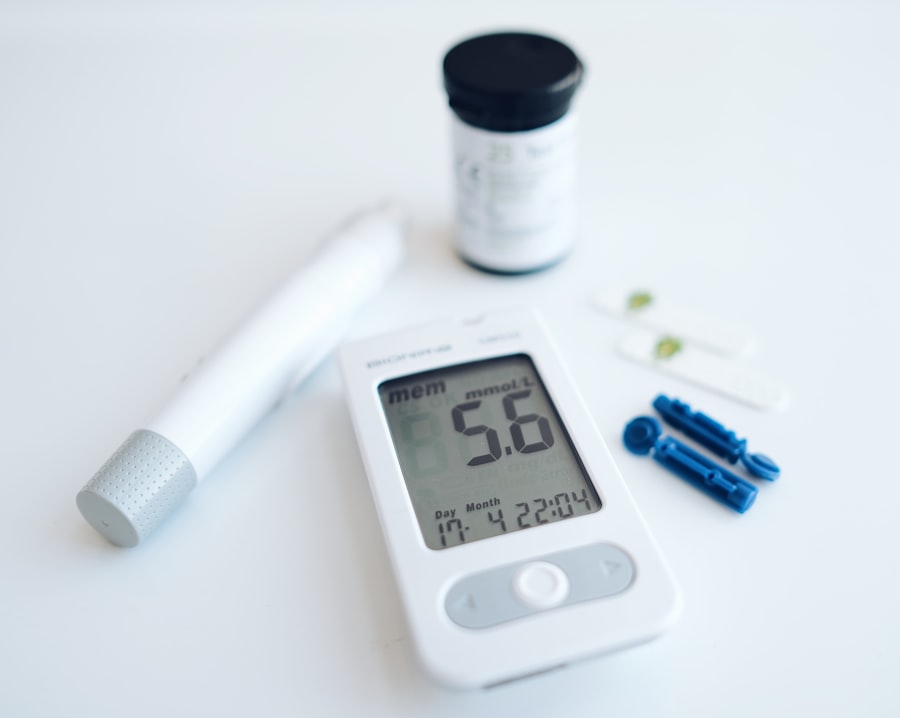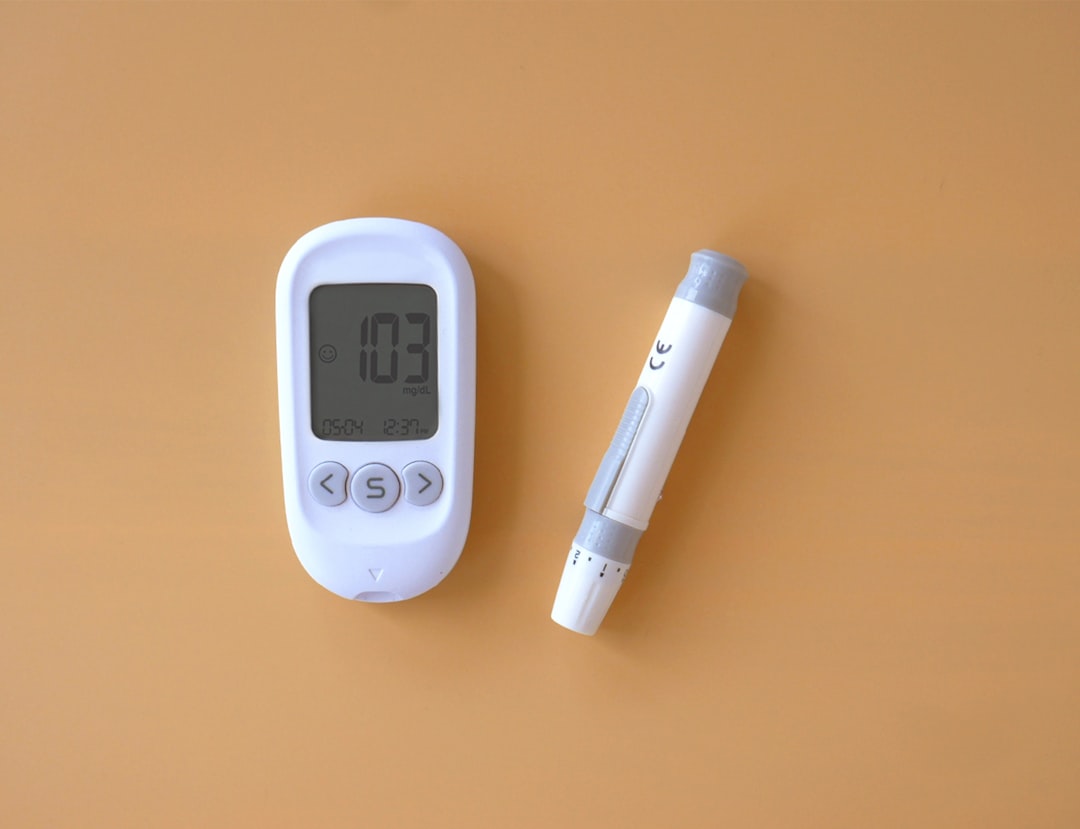Insulin resistance is a condition that affects how your body responds to insulin, a hormone crucial for regulating blood sugar levels. When you have insulin resistance, your cells become less responsive to insulin, leading to higher blood sugar levels. This can be a precursor to more serious health issues, such as type 2 diabetes and cardiovascular diseases.
Understanding this condition is vital for you, especially if you are a senior, as it can significantly impact your overall health and quality of life. As you age, your body undergoes various changes that can increase the risk of developing insulin resistance. Factors such as decreased muscle mass, hormonal changes, and lifestyle choices can all contribute to this condition.
Recognizing the signs of insulin resistance—such as fatigue, increased hunger, and difficulty concentrating—can empower you to take proactive steps toward improving your health. By understanding the underlying mechanisms of insulin resistance, you can better navigate your journey toward better health and well-being.
Key Takeaways
- Insulin resistance is a condition where the body’s cells do not respond properly to insulin, leading to high blood sugar levels.
- Seniors with insulin resistance are at higher risk for developing type 2 diabetes, heart disease, and other health complications.
- A diet rich in whole foods, low in processed sugars and carbohydrates, and high in fiber can help reverse insulin resistance.
- Regular exercise, including strength training and aerobic activities, can improve insulin sensitivity in seniors.
- Managing stress, getting enough sleep, and practicing relaxation techniques can help improve insulin sensitivity in seniors.
The Impact of Insulin Resistance on Seniors
For seniors, the implications of insulin resistance can be particularly concerning. As you age, your body may already be dealing with a range of health issues, and the added burden of insulin resistance can complicate matters further. This condition can lead to an increased risk of developing type 2 diabetes, which is associated with a host of complications, including heart disease, kidney damage, and vision problems.
The potential for these complications makes it essential for you to be aware of how insulin resistance can affect your health. Moreover, insulin resistance can also impact your energy levels and overall vitality. You may find yourself feeling more fatigued or sluggish than usual, which can hinder your ability to engage in daily activities or enjoy life to the fullest.
This cycle can lead to a decline in physical activity, further exacerbating the problem. Understanding the impact of insulin resistance on your life is the first step toward making meaningful changes that can enhance your well-being and longevity.
The Role of Diet in Reversing Insulin Resistance

Diet plays a crucial role in managing and potentially reversing insulin resistance. As you consider your eating habits, focus on incorporating whole foods that are rich in nutrients while minimizing processed foods high in sugars and unhealthy fats. A diet that emphasizes fruits, vegetables, whole grains, lean proteins, and healthy fats can help improve your body’s sensitivity to insulin.
By making conscious choices about what you eat, you can take significant strides toward better health. Additionally, understanding the glycemic index of foods can be beneficial for you.
Incorporating more low-glycemic foods into your diet can help reduce insulin spikes and improve your overall metabolic health. You might also consider consulting with a nutritionist who specializes in diabetes management to create a personalized meal plan that suits your needs and preferences.
The Importance of Exercise for Seniors with Insulin Resistance
| Metrics | Insulin Resistance Group | Control Group |
|---|---|---|
| Improved Insulin Sensitivity | 20% increase | 5% increase |
| Reduced Fasting Blood Glucose Levels | 15% decrease | 3% decrease |
| Increased Muscle Mass | 10% increase | 2% increase |
| Enhanced Cardiovascular Endurance | 25% improvement | 8% improvement |
Exercise is another powerful tool in combating insulin resistance. Regular physical activity helps improve insulin sensitivity by allowing your muscles to use glucose more effectively. As a senior, engaging in both aerobic exercises—like walking or swimming—and strength training can provide significant benefits.
Aim for at least 150 minutes of moderate-intensity aerobic activity each week, along with two days of strength training to build muscle mass. Incorporating exercise into your routine doesn’t have to be daunting. Start with activities you enjoy and gradually increase the intensity and duration as you become more comfortable.
Even simple activities like gardening or taking short walks can make a difference in your insulin sensitivity. Remember that consistency is key; finding ways to stay active will not only help manage insulin resistance but also improve your overall mood and energy levels.
Managing Stress and Sleep to Improve Insulin Sensitivity
Stress management and quality sleep are often overlooked aspects of improving insulin sensitivity. Chronic stress can lead to elevated cortisol levels, which may contribute to insulin resistance. As you navigate daily challenges, consider incorporating stress-reducing techniques such as mindfulness meditation, deep breathing exercises, or yoga into your routine.
These practices can help lower stress levels and improve your overall well-being. Sleep is equally important; inadequate sleep can disrupt hormonal balance and negatively affect insulin sensitivity. Aim for 7-9 hours of quality sleep each night by establishing a consistent sleep schedule and creating a relaxing bedtime routine.
Limiting screen time before bed and creating a comfortable sleep environment can also enhance your sleep quality. By prioritizing stress management and sleep hygiene, you can create a supportive foundation for improving your insulin sensitivity.
Natural Supplements and Herbs for Insulin Resistance

In addition to dietary changes and lifestyle modifications, certain natural supplements and herbs may help improve insulin sensitivity. For instance, cinnamon has been shown to enhance insulin action and lower blood sugar levels. Similarly, berberine—a compound found in several plants—has been linked to improved glucose metabolism and reduced insulin resistance.
Before adding any supplements to your routine, it’s essential to consult with your healthcare provider to ensure they are safe and appropriate for you. Other supplements worth considering include alpha-lipoic acid, magnesium, and omega-3 fatty acids. Each of these has been studied for its potential benefits in managing blood sugar levels and improving overall metabolic health.
By exploring these natural options alongside dietary changes and exercise, you can create a comprehensive approach to reversing insulin resistance that aligns with your health goals.
The Benefits of Intermittent Fasting for Seniors
Intermittent fasting has gained popularity as an effective strategy for improving metabolic health, including insulin sensitivity. This eating pattern involves cycling between periods of eating and fasting, which may help regulate blood sugar levels and promote weight loss. For seniors like yourself, intermittent fasting can be an accessible way to simplify meal planning while reaping potential health benefits.
Research suggests that intermittent fasting may enhance insulin sensitivity by reducing inflammation and promoting cellular repair processes. If you’re considering this approach, start slowly by gradually increasing the duration of your fasting periods. You might find success with methods like the 16/8 approach—where you fast for 16 hours and eat during an 8-hour window—or alternate-day fasting.
As always, consult with your healthcare provider before making significant changes to your eating patterns.
Managing Medications and Insulin for Seniors
For seniors managing insulin resistance or diabetes, understanding medications is crucial for effective management. If you’re prescribed medications such as metformin or insulin therapy, it’s essential to follow your healthcare provider’s instructions closely. These medications can help regulate blood sugar levels but may also require adjustments based on lifestyle changes like diet and exercise.
Regular communication with your healthcare team is vital in managing medications effectively. They can help monitor your progress and make necessary adjustments based on your individual needs. Additionally, keeping track of any side effects or changes in how you feel can provide valuable information for your healthcare provider as they work with you to optimize your treatment plan.
Monitoring Blood Sugar Levels and Making Adjustments
Monitoring your blood sugar levels is an essential aspect of managing insulin resistance effectively. Regularly checking your blood glucose can help you understand how different foods, activities, and stressors affect your body’s response to insulin. By keeping a log of your readings alongside notes about what you’ve eaten or how you’ve exercised, you can identify patterns that may inform future decisions about diet and lifestyle.
If you notice fluctuations in your blood sugar levels despite making positive changes, it may be time to reassess your approach with the guidance of a healthcare professional. They can help you determine whether adjustments in diet, exercise routines, or medications are necessary to achieve better control over your blood sugar levels.
Seeking Support and Guidance from Healthcare Professionals
Navigating the complexities of insulin resistance can be challenging, especially as a senior dealing with multiple health concerns. Seeking support from healthcare professionals—such as doctors, dietitians, or diabetes educators—can provide valuable insights tailored to your unique situation. They can help you develop a comprehensive plan that addresses not only insulin resistance but also any other health issues you may face.
Don’t hesitate to ask questions or express concerns during appointments; open communication is key to receiving the best care possible. Additionally, consider joining support groups or community programs focused on diabetes management or healthy living for seniors. Connecting with others who share similar experiences can provide motivation and encouragement as you work toward reversing insulin resistance.
Creating a Long-Term Plan for Reversing Insulin Resistance
Creating a long-term plan for reversing insulin resistance involves setting realistic goals and establishing sustainable habits that promote overall health. Start by identifying specific areas you’d like to focus on—whether it’s improving your diet, increasing physical activity, or managing stress more effectively—and develop actionable steps toward achieving those goals. Remember that progress may take time; be patient with yourself as you work through this journey.
By committing to a long-term approach that prioritizes healthy living, you can significantly improve your chances of reversing insulin resistance and enhancing your quality of life as you age. In conclusion, understanding insulin resistance is crucial for seniors looking to maintain their health and vitality as they age.
By focusing on diet, exercise, stress management, natural supplements, medication management, monitoring blood sugar levels, seeking professional guidance, and creating a long-term plan, you can take proactive steps toward reversing this condition and enjoying a healthier future.
For seniors looking to reverse insulin resistance naturally, incorporating lifestyle changes such as a balanced diet and regular physical activity can be highly effective. A related article on this topic can be found on Explore Senior Health, which provides valuable insights into managing insulin resistance through natural methods. The article emphasizes the importance of whole foods, reducing sugar intake, and engaging in exercises suitable for seniors. For more detailed information, you can read the full article by visiting this link.
WATCH THIS!🧠 The Breakfast Mistake That Fuels Senior Memory Loss
FAQs
What is insulin resistance?
Insulin resistance is a condition in which the body’s cells become resistant to the effects of insulin, leading to high blood sugar levels. This can eventually lead to type 2 diabetes if left untreated.
How does insulin resistance affect seniors?
Insulin resistance can affect seniors by increasing their risk of developing type 2 diabetes, heart disease, and other health complications. It can also lead to decreased energy levels and overall reduced quality of life.
What are some natural ways to reverse insulin resistance in seniors?
Some natural ways to reverse insulin resistance in seniors include maintaining a healthy weight, engaging in regular physical activity, following a balanced diet low in processed sugars and carbohydrates, managing stress levels, and getting enough sleep.
Can dietary changes help reverse insulin resistance in seniors?
Yes, making dietary changes such as reducing intake of processed sugars and carbohydrates, increasing consumption of fiber-rich foods, and incorporating healthy fats and lean proteins can help reverse insulin resistance in seniors.
Is exercise important for reversing insulin resistance in seniors?
Yes, regular physical activity is crucial for reversing insulin resistance in seniors. Exercise helps improve insulin sensitivity, lower blood sugar levels, and maintain a healthy weight.
Are there any supplements that can help reverse insulin resistance in seniors?
Some supplements such as chromium, magnesium, and alpha-lipoic acid have been shown to help improve insulin sensitivity and may be beneficial for seniors looking to reverse insulin resistance. However, it’s important to consult with a healthcare professional before taking any supplements.
